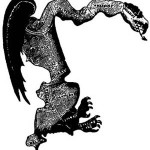A Tallahassee judge on Thursday knocked the Legislature’s proposed constitutional amendment dealing with redistricting standards off the ballot, saying he couldn’t easily understand what it would do so it was unreasonable to expect voters could.
 Amendment 7 was put on the November ballot by lawmakers earlier this year after two other amendments dealing with redistricting were cleared to go before voters. Those two amendments – 5 and 6 – angered lawmakers who said the effort by a citizens group called FairDistricts.org to “remove politics” from redistricting could have illegal unintended consequences.
Amendment 7 was put on the November ballot by lawmakers earlier this year after two other amendments dealing with redistricting were cleared to go before voters. Those two amendments – 5 and 6 – angered lawmakers who said the effort by a citizens group called FairDistricts.org to “remove politics” from redistricting could have illegal unintended consequences.
FairDistricts said it intended 5 and 6 to bar lawmakers from redrawing political boundaries that favor themselves. The two FairDistricts amendments – put on the ballot after a signature gathering effort – spell out certain boundary drawing rules, including prohibitions against favoring incumbents or political parties when drawing the districts, which lawmakers do every 10 years to account for demographic changes.
But legislators said the FairDistricts amendments likely couldn’t actually work – that there was no way districts could be drawn that could be defended as having met the required standards – and that they might run afoul of federal requirements that minority interests be protected when drawing lines.
So the Legislature wrote its own amendment to also put before voters – one that lawmakers argued would clarify that even if Amendment 5 and 6 passed, there were certain requirements for how to draw the lines that should be adhered to – that had to be adhered to – even if it seemed they might conflict with the FairDistricts amendments.
The League of Women Voters and the NAACP sued over the legislative amendment,. Amendment 7, saying that the ballot language was misleading.
Ron Meyer, the lawyer who argued for the groups challenging the amendment, said that what the legislative amendment appeared to call for was goals for what lawmakers should try to do when drawing districts – not actual requirements – and that the language would make those goals paramount to other standards already in the constitution.
Moreover, the amendment was misleading, Meyer argued.
Circuit Judge James O. Shelfer agreed, issuing a verbal order to strike the amendment, saying voters couldn’t be expected to know what it would do.
“The court concluded that the amendment flies under false colors and hides the ball,” Meyer said. “It does things that are not apparent to the voter.”
League of Women Voters President Deirdre Macnabb said the legislative amendment wasn’t just coincidentally confusing. She argued it was meant to blunt the two FairDistricts proposals, calling it a “deceptive ruse by Florida legislators to trick voters.”
Incoming House Speaker Dean Cannon noted that Shelfer appeared to suggest that Amendment 7 could interfere with a current constitutional requirement that districts be contiguous – that is, not be composed of areas that don’t touch each other such as a district that includes part of one county and part of another one three counties away. Cannon said the legislatively drawn amendment wouldn’t affect that requirement at all.
“There is absolutely no basis for this ruling in the amendment’s legislative history or record,” Cannon said in a statement. “However, Amendments 5 and 6 on redistricting will be subject to judicial review later this month. It will be interesting to see how this ruling impacts the judicial review of Amendments 5 and 6. If the judge here found Amendment 7 confusing, Amendments 5 and 6 probably are as well since they are far more complicated and have far greater impacts on present constitutional powers and rights.”
A spokeswoman for incoming Senate President Mike Haridopolos – the most vocal critic of Amendments 5 and 6 – said he’d have a statement later on Thursday.
Legislative Democrats, most of whom were opposed to Amendment 7, agreed with the plaintiffs that the Legislature’s proposal was intentionally disingenuous and applauded the ruling.
“Today, a Florida court has properly recognized the failings and deceit of a Republican-led legislative attempt to undermine the citizen-backed FairDistricts reapportionment ballot measures,” said House Minority Leader Franklin Sands, D-Weston.
Amendments 5 and 6 are being challenged in a lawsuit filed by two members of Congress, Democratic Rep. Corrine Brown and Republican Rep. Mario Diaz-Balart, arguing that those amendments could reverse gains made in guaranteeing minority voting rights that are protected by federal law. A hearing on that case, in which the state is the defendant, is scheduled for later Thursday.
Both sides expect that Shelfer’s Amendment 7 ruling will be appealed, and likely eventually decided by the Supreme Court.
By David Royse
The News Service of Florida


